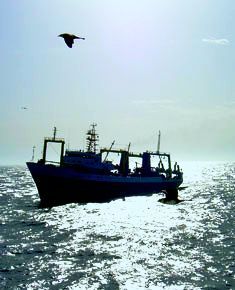WTO negotiators reach tentative accord on major global trade issues
Published:
5 August 2004 y., Thursday
Key trade ministers tentatively agreed Saturday on a plan to end export subsidies on farm products and cut import duties around the world, a key step toward a comprehensive global accord under discussion since 2001, trade officials said.
The deal was expected to be approved by all 147 members of the World Trade Organization later Saturday, opening the way for full negotiations to start in September.
"Developed countries have recognized that agricultural trade with a heavy subsidy component is not free trade," said Indian Trade Minister Kamal Nath.
But he said the United States, European Union and other developed countries will also benefit by removing heavy agricultural subsidies from their budgets.
Ken Ritter, president of the Canadian Wheat Board, said he's concerned the tentative deal would break a promise the Canadian government made to protect the grain marketing monopoly. In a breakthrough Saturday some 20 key countries approved a document setting out the framework for a legally binding treaty, World Trade Organization spokesman Keith Rockwell said.
The document will commit countries to lowering import duties and reducing government support in the three major areas of international trade - industrial goods, agriculture and service industries, such as telecommunications and banking.
The deal sets back in motion the long-stalled "round" of trade liberalization treaty talks that were launched by WTO members in Doha, Qatar, in 2001 but delayed by the collapse of the body's ministerial meeting in Cancun, Mexico, last year.
In agriculture, the document agrees to eliminate export subsidies and other forms of government support for exports, while making big cuts to other subsidies. It includes a "down payment" that would see an immediate 20-per-cent cut in the maximum permitted payments by rich countries.
Šaltinis:
Canadian Press
Copying, publishing, announcing any information from the News.lt portal without written permission of News.lt editorial office is prohibited.
The most popular articles
 The financial crisis is having a serious impact on low-income countries.
more »
The financial crisis is having a serious impact on low-income countries.
more »
 The agreement was welcomed by the EU, which has led efforts to crack down on loose banking practices that caused the financial crisis.
more »
The agreement was welcomed by the EU, which has led efforts to crack down on loose banking practices that caused the financial crisis.
more »
 On 31 March this year, the boards of AB Bank SNORAS and AB “Invalda” approved of the purchase and sales transaction of AB “Invalda” financial group's companies.
more »
On 31 March this year, the boards of AB Bank SNORAS and AB “Invalda” approved of the purchase and sales transaction of AB “Invalda” financial group's companies.
more »
 MEPs will vote on Thursday 2 April on a first reading agreement on the voluntary EU Ecolabel (“EU flower”) system for environment-friendly products to become less costly and bureaucratic to use.
more »
MEPs will vote on Thursday 2 April on a first reading agreement on the voluntary EU Ecolabel (“EU flower”) system for environment-friendly products to become less costly and bureaucratic to use.
more »
 The fourth quarter of 2008 was not so good for the banking industry, and the financial conditions of commercial banks and savings and loans is expected to further deteriorate for the rest of 2009 and the first part of 2010, according to LACE Financial Corp.
more »
The fourth quarter of 2008 was not so good for the banking industry, and the financial conditions of commercial banks and savings and loans is expected to further deteriorate for the rest of 2009 and the first part of 2010, according to LACE Financial Corp.
more »
 MEPs recently gave the green light to a new trade deal between Europe and Caribbean countries.
more »
MEPs recently gave the green light to a new trade deal between Europe and Caribbean countries.
more »
 New VoIP Features Boost Flexibility, Mobility, Cost Savings for Organizations Seeking to Untether Workers.
more »
New VoIP Features Boost Flexibility, Mobility, Cost Savings for Organizations Seeking to Untether Workers.
more »
 According to the revised data, in IV quarter 2008, GDP at current prices made LTL 28578.8 million and against IV quarter 2007 decreased by 2.2 per cent.
more »
According to the revised data, in IV quarter 2008, GDP at current prices made LTL 28578.8 million and against IV quarter 2007 decreased by 2.2 per cent.
more »
 The EP Fisheries Committee rewrote the rules on recreational fishing in its consultative report, adopted Tuesday, on a proposed “control regulation” to ensure compliance with common fisheries policy (CFP) rules.
more »
The EP Fisheries Committee rewrote the rules on recreational fishing in its consultative report, adopted Tuesday, on a proposed “control regulation” to ensure compliance with common fisheries policy (CFP) rules.
more »
 In a measure of the Union’s strong growth prior to the financial crisis, the demand for EU trademark rights has shot up in recent years, creating an unexpected budget surplus.
more »
In a measure of the Union’s strong growth prior to the financial crisis, the demand for EU trademark rights has shot up in recent years, creating an unexpected budget surplus.
more »